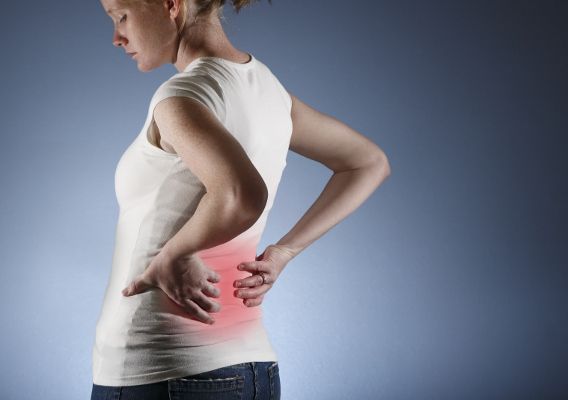Back pain in the morning
Last reviewed: 23.04.2024

All iLive content is medically reviewed or fact checked to ensure as much factual accuracy as possible.
We have strict sourcing guidelines and only link to reputable media sites, academic research institutions and, whenever possible, medically peer reviewed studies. Note that the numbers in parentheses ([1], [2], etc.) are clickable links to these studies.
If you feel that any of our content is inaccurate, out-of-date, or otherwise questionable, please select it and press Ctrl + Enter.
Sedentary life sooner or later begins to affect the health of a person: there is pain in the back in the morning, it becomes harder to get out of bed, and it takes some time to move a little, to disperse, and thereby reduce pain. At the same time, sometimes the pain is not felt at night, and in principle you can get a good night's sleep. However, if you spend the night in an uncomfortable bed, being in one position, then in the morning you will be awakened by a drawing pain in the lower back.
The cause of such a malaise is osteochondrosis, which causes either a violation of the mechanics of the movement of the spinal column, or spasm of muscles and ligaments, or even minor changes in the small joints inside the column of the spine. Thus, back pain in the morning is caused, first of all, by spasm of the muscles, because often there are complaints about the shingling pain of the pulling character, which is compared with the tightly stretched hoop. This pain is capable of radiating into the abdominal wall and causing painful sensations in the lower abdomen.

 [1]
[1]
Diseases that cause back pain in the morning
Osteochondrosis, which affects the lumbar spine, often manifests not very noticeable symptoms: a feeling of fatigue, a slight inconvenience with the torso tilted forward, back pain in the morning. It should be noted that over time the pain becomes more acute and frequent, then permanent. They can also be aggravated during coughing and sneezing, and sometimes even when you clap your hands or bend over to tie your shoelaces.
Often throughout the day we can notice how quickly the back gets tired, if you need a long period of time to stay in an upright position. In particular, this condition is clearly felt in the transport, when there are no free places, at first there is a quiet but at the same time debilitating pain of a monotone nature, then, in the process of growth, it spreads to the entire spine. So there is an osteochondrosis, which affects the thoracic spine. There is an opinion that the cause lies directly in the back, since the spine is allegedly not sufficiently adapted to being in an upright position. But now it became clear to scientists that our ancient ancestors moved on two legs many millions of years ago. In other words, the human body has in order to walk in an upright position, many devices that give the spine the ability to carry significant loads.
Most of us, feeling pain in the neck, neck, between the shoulder blades or heaviness in the forelegs, feeling that the hands are numb during sleep, do not even suspect that all of the above is the symptoms of progressive osteochondrosis in the cervical spine. The fact that the vertebral arteries are involved in the process and the blood supply to the brain is disturbed is also evidenced by flashing before the eyes of "flies" during the turn of the head. Sometimes even the most common movements can help alleviate, and in some cases, altogether get rid of back pain in the morning.
If you can not curb back pain in the morning on your own, the doctor will help you and prescribe the treatment you need only. The doctor can prescribe to you manual therapy, reflexotherapy, physiotherapy procedures, which are aimed at relaxing the muscles of the back. Treatment of osteochondrosis should be complex. It necessarily includes physical exercises. It is usually recommended to perform special exercises in warm water and do a massage of the dorsal muscles. When the pain disappears, you can start doing exercises that strengthen the lumbar spine. Wearing a hard corset will not only form the correct, and therefore beautiful posture, but also support the spine.
If you feel some tension and even back pain in the morning, it is likely that you are used to falling asleep on your back. The fact is that if you sleep on your back, stretching your legs, you have an increased bend in the lower back.
Back pain in the morning, if it is not related to the injury, can occur for 2 reasons - overload of the spinal muscles and swelling. Therefore, it is very important not only to remove the pain syndrome, but also to restore the resources of the back muscles, remove the edema, restore the blood supply to the spinal cord.
If you have a severe spinal injury, and if you have a prolonged muscle spasm, subluxations may occur, which can result in asymmetric contraction of the cervical musculature, local curvature of the spine, and the appearance of severe pain in the corresponding area of the back. Back pain in the morning often manifests immediately after sleep and can concentrate in the neck or lower back.
But often (in 65% of cases) back pain causes muscle stiffness, stress, incorrect posture and excessive weight. Symptoms are: severe back pain in the morning, which gradually decreases by the middle of the day due to increased mobility. If you suddenly feel that you have back pain in the morning, then you need, without delay, to seek advice and help from a traumatologist and a neurologist.

